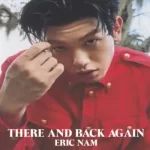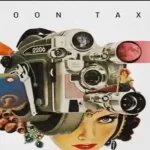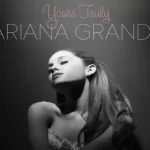Anime, a captivating world of vivid imagination and storytelling, owes much of its emotional resonance and impact to its music. Anime music, with its diverse genres and enchanting melodies, has the power to transport viewers to different realms and evoke a wide range of emotions. In this 3000-word article, we will delve deep into the realm of anime music, exploring its various facets, from the artists who bring it to life to the defining characteristics that make it so unique. Join us on this melodic journey through the enchanting world of anime music.
Subcategories of Anime Music
Before we embark on our exploration, it’s essential to understand the different subcategories within the world of anime music. These subcategories play a crucial role in shaping the diverse soundscape of anime.
Anime Concerts
Anime concerts are live performances that bring anime music to life. These events feature orchestras, bands, and artists performing beloved anime tunes in front of an enthusiastic audience. They create an immersive experience, allowing fans to connect with their favorite shows on a whole new level.
Anime Musicians
Behind every mesmerizing anime soundtrack is a talented musician. This category celebrates the artists who compose, arrange, and perform the music that becomes the heartbeat of anime series and movies.
Anime Songs
Anime songs are the soul of the show. They include opening and closing theme songs, character songs, and insert songs. These tunes often become iconic and are forever associated with the anime they belong to.
Anime Soundtracks
Anime soundtracks are the backbone of any series or film. These instrumental compositions set the mood, enhance the storytelling, and create an emotional connection with the audience. They are an integral part of the anime experience.
Now that we have a grasp of the subcategories, let’s delve deeper into the world of anime music.
Music Artists
Anime music owes its magic to a plethora of talented artists. Composers, lyricists, singers, and instrumentalists come together to craft melodies that resonate with fans worldwide. One notable name in the anime music industry is
| Artist Name | Notable Works | Contribution |
|---|---|---|
| Yoko Kanno | “Cowboy Bebop,” “Ghost in the Shell: Stand Alone Complex” | Composer, Arranger, Pianist |
| Joe Hisaishi | Studio Ghibli films like “Spirited Away” and “My Neighbor Totoro” | Composer, Conductor, Pianist |
| Hikaru Utada | “Kingdom Hearts” series, “Evangelion: 3.0 You Can (Not) Redo” | Singer, Songwriter |
| Maaya Sakamoto | “Escaflowne,” “RahXephon,” “Cardcaptor Sakura” | Singer, Actress |
| Nana Mizuki | “Naruto,” “Magical Girl Lyrical Nanoha” | Singer, Voice Actress |
Music Examples
To truly appreciate the diversity of anime music, let’s explore some iconic examples. Consider the hauntingly beautiful opening theme of “Attack on Titan” (“Guren no Yumiya”) by Linked Horizon. Its intense, orchestral sound perfectly captures the essence of the series. On the opposite end of the spectrum, we have the catchy and upbeat “Cruel Angel’s Thesis” from “Neon Genesis Evangelion.” These examples showcase how anime music spans various genres, catering to different tastes.
Music genre anime
Anime music is a versatile genre in itself, as it draws inspiration from various musical styles. Some common genres within anime music include:
J-Pop and J-Rock: These genres dominate the realm of anime songs, providing catchy and energetic tunes for openings and endings.
Orchestral: Often used in epic fantasy or action series, orchestral music heightens the drama and intensity of the narrative.
Electronic: Many futuristic or science fiction anime feature electronic music to create a futuristic atmosphere.
Classical: Classical compositions are used to add sophistication and depth to historical or dramatic series.
Music Characteristics
Anime music possesses several distinct characteristics that set it apart from other genres:
Emotional Resonance: Anime music has the remarkable ability to convey complex emotions. It can make you feel joy, sorrow, excitement, or nostalgia with just a few notes.
Narrative Enhancement: The music serves as a storytelling tool, accentuating key plot points and character development.
Memorability: Iconic anime songs are often remembered long after the series has ended, becoming timeless classics.
FAQ
Q1: What are some famous anime songs?
Some famous anime songs include “Unravel” from “Tokyo Ghoul,” “My Dearest” from “Guilty Crown,” and “Colors” from “Code Geass.”
Q2: Who is the most famous anime music composer?
One of the most famous anime music composers is Joe Hisaishi, renowned for his work with Studio Ghibli on films like “Spirited Away” and “My Neighbor Totoro.”
Q3: How does anime music impact the viewing experience?
Anime music enhances the viewing experience by creating emotional connections, setting the mood, and highlighting important story moments.
Conclusion
Anime music, a symphony of sounds and emotions, is an integral part of the anime experience. It encompasses a wide array of subcategories, from concerts to musicians, songs, and soundtracks. The artists who breathe life into anime music play a pivotal role in shaping the industry. With its diverse genres and unique characteristics, anime music has the power to touch the hearts of fans worldwide. As we continue to explore the enchanting world of anime, let us never underestimate the profound impact of its music.







